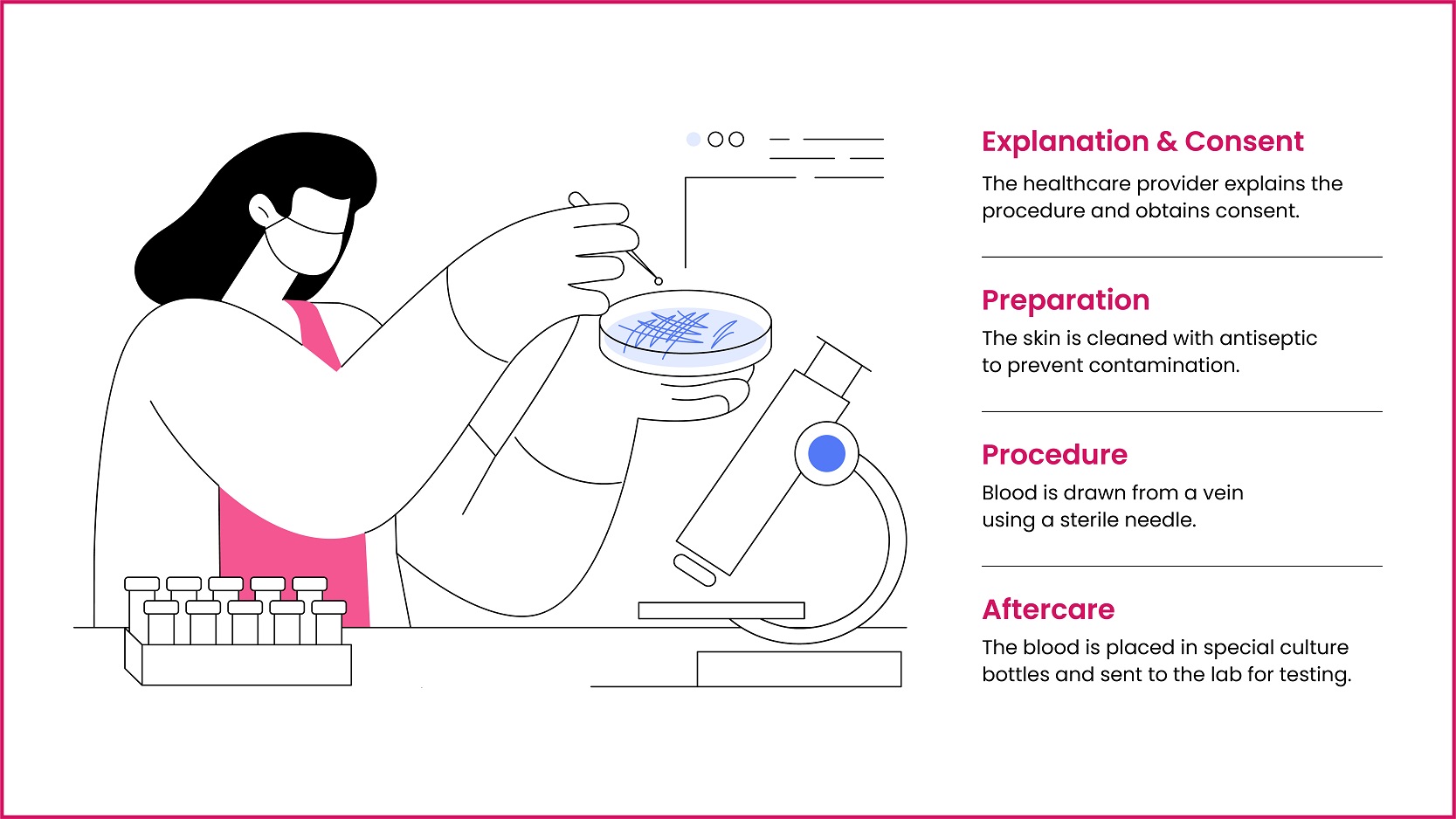Blood culture test indications require essential diagnostic procedures. The tests are used to detect the presence of bacteria or fungi in the bloodstream. This is a condition known as bacteremia or fungemia. The tests are crucial for identifying the specific microorganisms causing an infection. They make it possible for healthcare providers to prescribe the most effective antimicrobial treatment.

Come to Avigna Diagnostics for blood culture test in Hyderabad
For any diagnostic for blood culture test in Hyderabad, going to the right lab is important for a patient. Doctors send their patients to Avigna Diagnostics which offers a full-fledged and systematic method of testing and reporting. Blood cultures are valuable when systemic infections are suspected. The analysis and reports guide appropriate medical interventions.
This article aims to educate readers about blood culture test at diagnosing at the right labs.
Symptoms requiring a Blood Culture Test
Patients exhibiting signs of a systemic infection may require blood culture testing. The most common symptoms include:
- High fever (especially with chills or rigors)
- Rapid heart rate
- Abnormally low blood pressure
- Confusion or altered mental status
- Difficulty in breathing
These symptoms can indicate sepsis. It is a life-threatening condition requiring urgent medical attention. It is revealed through proper diagnostic evaluation including blood cultures.
Key Indications for Blood Culture Testing
- Suspected Sepsis: When patients show signs of systemic inflammatory response syndrome (SIRS) combined with a suspected infection
- Endocarditis: Infection of the heart valves or inner lining of the heart chambers
- Unexplained Fever: Persistent high temperature without an obvious source, particularly in immunocompromised patients
- Pneumonia: Severe cases or those not responding to initial treatment
- Central Line-Associated Infections: Suspected infections related to central venous catheters or other indwelling devices
- Meningitis: Blood cultures are often performed alongside cerebrospinal fluid testing when meningitis is suspected
Blood Culture Testing Procedure
Blood culture collection involves careful skin preparation to prevent contamination. Multiple blood samples are drawn from different venipuncture sites, usually 20-30 minutes apart.
For adults, approximately 10 ml of blood is collected per culture bottle. It is done with sets of aerobic and anaerobic media to support various microorganisms. Patients should inform healthcare providers about current antibiotic use, as this may affect results.
The timing of collection is crucial. It is done before antibiotic administration and during or just before fever spikes. These are times when bacteria are most likely to be present in the bloodstream.

Steps taken by Avigna Diagnostics for blood culture tests
Diagnostic Process for Blood Culture Tests
Blood samples are transported to the laboratory and placed in specialized incubators with continuous monitoring systems that detect microbial growth. These automated blood culture instruments scan bottles regularly for changes in CO₂ production, pH, or pressure that indicate microbial metabolism.
When growth is detected, laboratory technicians perform Gram staining and microscopic examination to provide preliminary identification.
Further testing includes subculture on appropriate media like:
- Biochemical tests
- Advanced techniques like MALDI-TOF mass spectrometry
- Molecular diagnostics for precise identification.
- Antimicrobial susceptibility testing determines which antibiotics will effectively treat the infection.
Positive reports
When positive results are obtained, physicians adjust treatment based on the identified microorganism and its antibiotic sensitivity profile. Initial broad-spectrum antibiotics may be narrowed to more targeted therapy. They reduce side effects and antimicrobial resistance development. In severe cases, additional interventions may be necessary. They may include removing infected devices or draining abscesses.
Negative reports
Negative blood culture results despite persistent symptoms can occur for several reasons like:
- Prior antibiotic therapy
- Infections with fastidious organisms requiring special growth conditions
- Non-bacterial infections (viral, fungal)
- Non-infectious causes of fever
Patients should discuss these possibilities with their healthcare provider. Based on these factors the doctor may recommend additional testing, alternative culture methods, or repeating blood cultures.
Our facility is equipped with state-of-the-art diagnostic equipment. Avigna Diagnostics also has skilled laboratory professionals experienced. They even handle complex cases which require thorough microbiological investigation.
Related Keywords:
Bblood Tests, Blood, Blood Culture, Blood Culture Test









Comments by admin